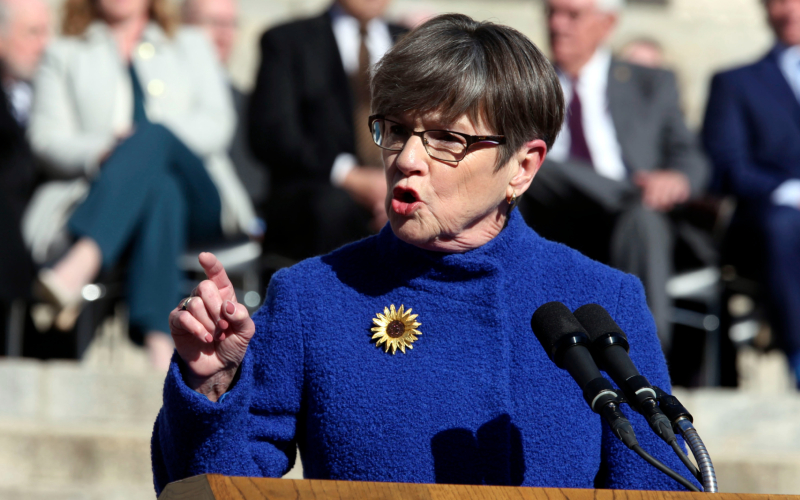Republican majorities in the House and Senate overcame internal squabbling and took a key step in advancing a compromise budget reconciliation bill Thursday. With unity seemingly out of reach and the holiday break approaching, some observers say the agreement defied expectations.
In the end, House Speaker Mike Johnson could only afford to lose three Republican votes and still pass the measure. He lost two – Reps. Thomas Massie (R-Kentucky) and Victoria Sparts (R-Indiana) – and the bill passed 216-214.
As expected, no Democrats supported the bill, which now clears the way for the House and Senate to create one spending bill – a bill that will address many of President Donald Trump’s priorities – to advance for Trump’s signature.
Many lawmakers worked into the night on Wednesday after holdouts earlier in the day numbered more than a dozen,” Fox News reported. Johnson and Senate Majority Leader John Thune (R-South Dakota) held a joint press conference to announce the two chambers’ agreement.
“A lot can happen in 12 hours as we saw last night,” Suzanne Bowdey, editorial director for The Washington Stand, explained on Washington Watch Thursday afternoon.
Whatever was said behind closed doors convinced enough wary Republicans to get on board.

“You saw House Freedom Caucus members marching across the Capitol to John Thune's office where they met, [then] walked back, not having come to a resolution. They met with Speaker Johnson on the floor numerous times,” Bowdey told show host Tony Perkins.
The two sides had been far apart on a figure for spending cuts. Reported figures had the Senate’s reconciliation bill at $4 billion in spending cuts, the House’s at $2 trillion. They agreed on $1.5 trillion in cuts, a victory for Johnson.
“I don't know what kind of rabbits he has in his hat. He keeps pulling them out one after the other, and overnight, seemingly after discussions that went on late into the evening, he was able to get some concessions from Thune, which I think ultimately were what brought people like Chip Roy across the line,” Bowdey said.
Johnson’s success in convincing Thune to support most of the House cuts had an impact. Once that happened, Rep. Roy, a hardline fiscal conservative from Texas, was able to see a clear path for many of the cuts he hopes will come to pass. He says he won’t vote for a final bill if it includes a penny less.
Chip Roy’s 'big three'
“Today, I reluctantly voted for the Senate amendment to the House Budget Resolution on the basis of three specific commitments that form the floor for my consideration of the final reconciliation package,” Roy said in a statement.
Roy’s big three included: Trump’s commitment to $1 trillion in “real reductions” in mandatory spending; Johnson’s commitment that House legislation will address the expiring tax cuts from Trump’s first term; Thune’s commitment to achieving the House figure of $1.5 trillion in spending cuts.
That $1.5 trillion is a minimum figure, Roy vowed. “To be clear, failure to achieve these baselines including deficit neutrality will make it impossible for me to support a final reconciliation product,” he said.
There likely would have been no smiling announcement ceremony between Johnson and Thune without the $1.5 trillion agreement, which is “a bare minimum, I believe, that got House Freedom Caucus members on board,” Bowdey said.
 Trump had spoken with House holdouts earlier in the process but was not part of the picture Thursday, a testament to Johnson’s leadership, she added.
Trump had spoken with House holdouts earlier in the process but was not part of the picture Thursday, a testament to Johnson’s leadership, she added.
“Speaker Johnson did this on his own. I think it’s a tremendous credit to him as Speaker,” she said, adding that some House Speakers in the past have been “very tightly gripped, very imperial” with members as opposed to Johnson’s willingness to listen to concerns.
On one hand, that’s a necessary reaction to a very small House majority number – but according to Bowdey, it’s also Johnson’s personality. “He cares about his members. He actually agrees with Freedom Caucus members, as he should. It's not like they were asking for something unreasonable,” she noted.
Moving forward with budget reconciliation continues a string of Johnson victories, Bowdey said, citing his own fight to become Speaker, passage of the most recent continuing resolution, and passage of the House budget.
“Now he passes the Senate budget with only two defections, which no one would have seen coming, nearly impossible,” Bowdey stated.
Important time for Thune
If Johnson is getting more comfortable as Speaker, this is a time for Thune, new in his role as Senate Majority Leader, to gain some footing.
For many voters, eyes can “glaze over” when they read or hear about budget negotiations – but as Bowdey pointed out, this is an important process that could lead to strengthening many of Trump’s objectives from executive orders into law.
“For John Thune, this is now his time to prove to conservatives that he means business, and to the members on his side of the chamber, he needs to show that, ‘Yes, I'm also interested in spending cuts.’
“This is why Donald Trump was elected. If they voted for Donald Trump and they care about his agenda, then this bill means an awful lot to every voter,” Bowdey said.














